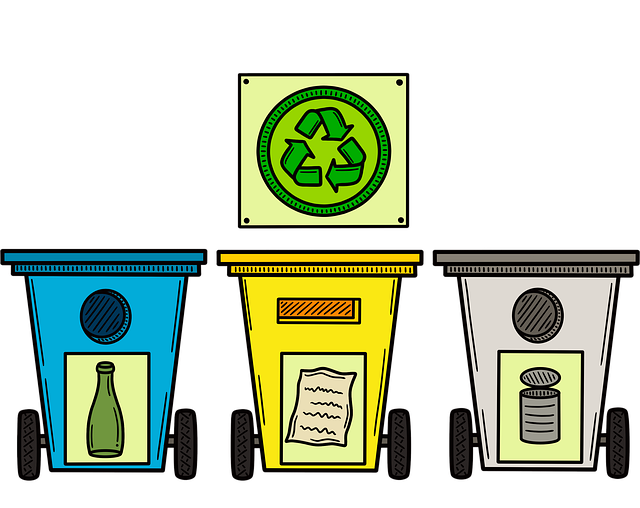NYS electronic recycling law has spurred Boston to establish robust e-recycling infrastructure, promoting proper disposal of hazardous e-waste materials while reducing New York State's ecological footprint. Local businesses collaborate with city initiatives, facilitating responsible recycling rates and diverting significant amounts from landfills, setting a positive example for other cities.
New York State (NYS) has made significant strides in recycling, but there’s always room for improvement. This article delves into the state’s current recycling landscape, focusing on key areas like electronic waste disposal, where the NYS electronic recycling law plays a crucial role. We’ll explore how NYC compares to Boston in terms of recycling rates and present strategies to enhance NYS’ recycling efforts. By examining these factors, we aim to highlight the potential for further sustainable progress.
- Understanding New York State's Recycling Landscape
- The Impact of Electronic Waste Disposal
- Boston's Comparison: A Look at Recycling Rates
- Strategies to Boost NYS Recycling Effort
Understanding New York State's Recycling Landscape

New York State (NYS) has been actively working to improve its recycling rates and reduce electronic waste (e-waste) through various initiatives and laws, with a particular focus on responsible e-recycling. The state’s commitment to environmental sustainability is evident in its comprehensive electronic recycling program. In line with the NYS electronic recycling law, Boston has played a significant role in ensuring proper disposal of electronic devices by establishing robust e-recycling infrastructure.
Under the Boston’s role in responsible electronic waste recycling under NYS law, residents and businesses are encouraged to recycle old electronics according to state regulations. This includes proper disposal of items like computers, smartphones, and home electronics, which often contain hazardous materials. The NYS electronic waste disposal regulations aim to minimize environmental impact by promoting recycling and preventing e-waste from ending up in landfills.
The Impact of Electronic Waste Disposal

The proper disposal and recycling of electronic waste, commonly known as e-waste, is a growing concern in New York State (NYS) and across the country. With the constant evolution of technology, the volume of electronic devices reaching their end-of-life is increasing significantly, posing both environmental and health risks if not handled correctly. Boston, as a bustling metropolis, must navigate these challenges while adhering to the NYS electronic recycling law. The law mandates that all e-waste be recycled or disposed of responsibly, aiming to reduce the state’s ecological footprint.
Local e-waste drop-off locations in Boston are sprouting up to facilitate this process, ensuring residents can dispose of their old electronics safely and in line with NYS guidelines. Additionally, businesses in Boston have an opportunity to contribute by embracing NYS incentives for promoting electronic recycling programs. By implementing efficient e-recycling strategies, Boston residents can play a crucial role in preserving the environment while also keeping up with the latest technological advancements, ensuring a sustainable future for both the city and the state.
Boston's Comparison: A Look at Recycling Rates

New York State’s commitment to environmental sustainability is reflected in its robust recycling programs and stringent electronic waste (e-waste) disposal regulations, as outlined in the NYS electronic recycling law. One interesting comparison can be drawn with Boston, a city known for its eco-friendly initiatives. The State-mandated e-waste collection points in Boston closely mirror those established under NYS standards, ensuring proper disposition of electronic devices from both residential and business sources.
Boston area businesses play a crucial role in this process, sharing the responsibility to facilitate responsible e-waste recycling under the NYS law. This collaborative effort has led to impressive recycling rates in the city, with a significant portion of e-waste being diverted from landfills. Such strides highlight the positive impact of state-level interventions, like the NYS electronic recycling law, on local environmental efforts and recycling rates, setting an example for other cities to follow suit.
Strategies to Boost NYS Recycling Effort

New York State has implemented several strategies to boost its recycling efforts, focusing on electronic waste (e-waste) management due to its significant environmental impact. One key initiative is the NYS electronic recycling law, which mandates that certain types of e-waste be collected and recycled separately from regular trash. To ensure compliance, Boston, among other cities, has established state-mandated e-waste collection points following NYS standards. These collection points make it easy for residents to dispose of their old electronics responsibly.
Non-compliance with the e-waste recycling laws in NYC can result in penalties, highlighting the importance of adhering to these regulations. Recycling old electronics according to state law in Boston not only helps reduce environmental contamination but also contributes to a circular economy by reusing valuable materials. This proactive approach ensures that electronic devices are properly disposed of or repurposed, minimizing their negative impact on the environment and setting an example for other states and cities across the nation.
New York State’s recycling efforts have shown promising progress, but there is still room for improvement. By learning from successful programs like Boston’s and implementing targeted strategies, NYS can enhance its recycling rates and move towards a more sustainable future. Compliance with the NYS electronic recycling law is a significant step, but continued education and infrastructure development are crucial to fostering a comprehensive recycling culture. With dedicated efforts, the state can reduce waste, preserve resources, and create a greener environment for future generations.













